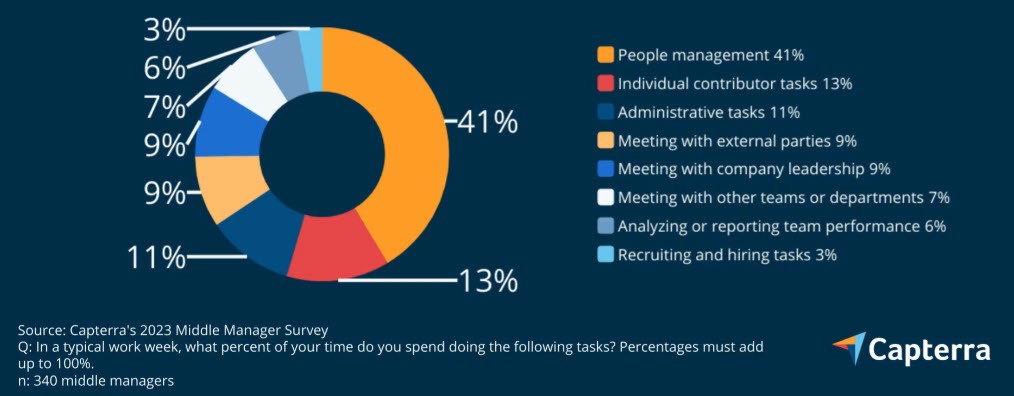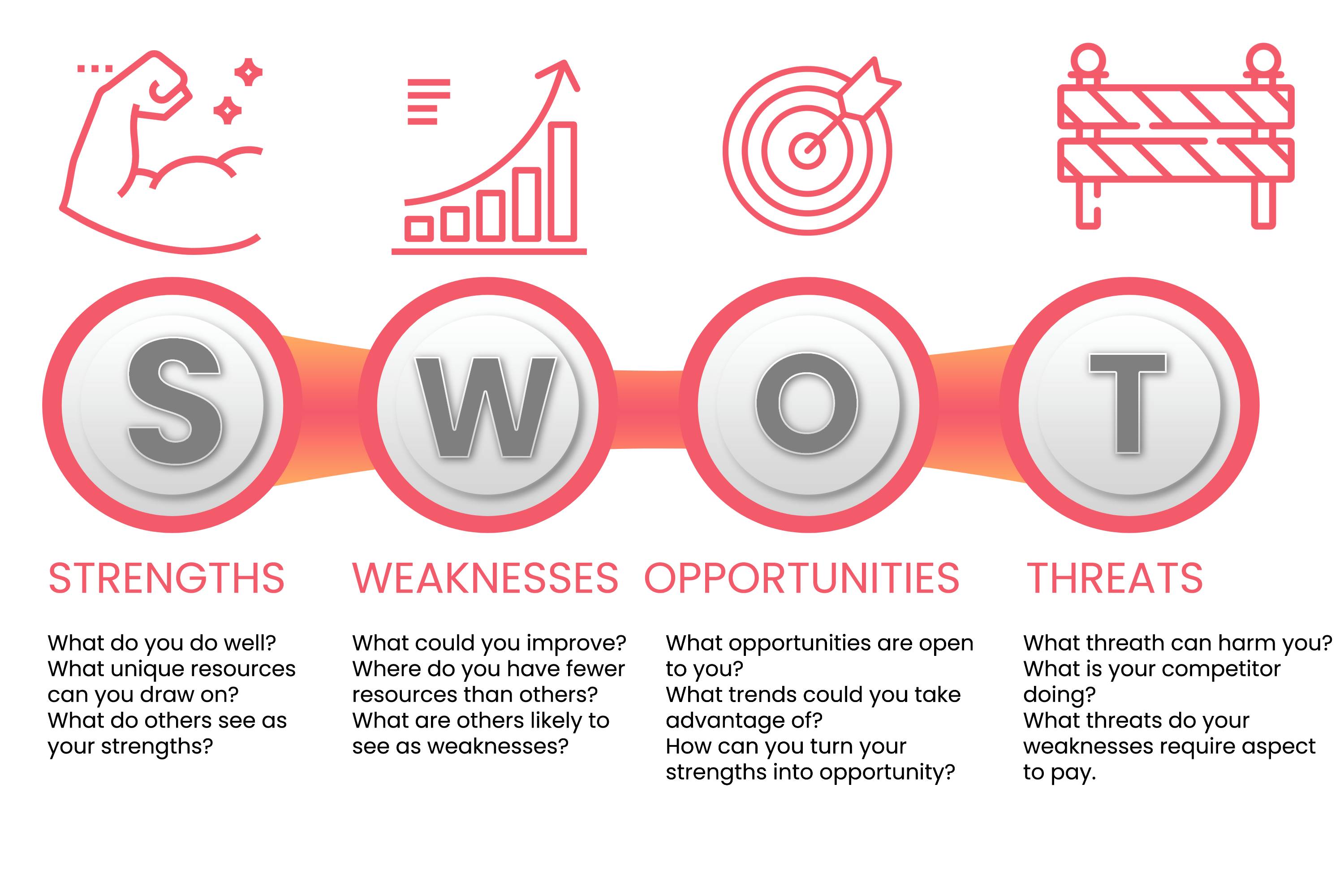The Importance Of Middle Managers In Achieving Business Objectives

Table of Contents
Bridging the Communication Gap
Effective middle managers are the linchpin of clear and consistent communication within an organization. They translate complex strategies from senior leadership into actionable tasks and goals for their teams. This vital role ensures everyone is on the same page, working towards shared objectives.
Effective Communication Strategies
- Regular Team Meetings: Consistent meetings facilitate open dialogue, address concerns, and keep teams informed.
- Transparent Reporting: Open and honest reporting to both upper management and team members fosters trust and accountability.
- Open-Door Policies: Creating a culture of accessibility encourages open communication and allows for quick resolution of issues.
Poor communication from middle management can lead to confusion, decreased morale, missed deadlines, and ultimately, failure to achieve business objectives. Utilizing tools like project management software can significantly improve communication flow and transparency. For example, platforms offering task assignment, progress tracking, and integrated communication features streamline workflows and enhance middle management's ability to keep everyone aligned.
Driving Team Performance and Motivation
Middle managers play a crucial role in fostering a positive and productive work environment. By creating a supportive and motivating atmosphere, they empower their teams to achieve peak performance. This, in turn, directly contributes to the achievement of broader business objectives.
Fostering a Positive Work Environment
- Recognition Programs: Publicly acknowledging and rewarding achievements boosts morale and encourages continued high performance.
- Team-Building Activities: Engaging team-building exercises foster camaraderie and improve collaboration.
- Mentorship Opportunities: Providing mentorship opportunities allows for skill development and career progression, enhancing employee engagement.
A strong team culture, nurtured by effective middle management, directly impacts the achievement of business objectives. Empowering team members through proper delegation and providing autonomy fosters a sense of ownership and responsibility, leading to improved results.
Talent Development and Succession Planning
Middle managers are key players in identifying and nurturing future leaders within the organization. Their proximity to the workforce allows them to recognize high-potential employees and provide them with the necessary development opportunities. This proactive approach ensures a robust talent pipeline for long-term organizational success.
Identifying and Nurturing Future Leaders
- Performance Reviews: Regular performance reviews provide valuable insights into employee strengths and areas for improvement.
- 360-Degree Feedback: Gathering feedback from multiple sources offers a comprehensive view of an employee's performance and potential.
- Mentorship and Coaching: Providing guidance and support helps employees develop their skills and advance their careers.
Investing in talent development through middle management is crucial for long-term business sustainability. By proactively identifying and nurturing future leaders, organizations ensure a steady stream of skilled professionals to fill critical roles and drive future growth.
Problem Solving and Conflict Resolution
Effective middle managers act as proactive problem-solvers, identifying and addressing potential issues before they escalate. This prevents disruptions to operations and ensures the smooth functioning of the organization. Their role in conflict resolution is equally critical.
Proactive Issue Management
- Root Cause Analysis: Investigating the underlying causes of problems ensures lasting solutions, rather than just addressing symptoms.
- Collaborative Problem-Solving: Involving team members in the problem-solving process fosters ownership and commitment to solutions.
Middle managers must be efficient decision-makers, capable of swiftly resolving conflicts and preventing them from hindering progress. Their ability to navigate challenging situations and make sound judgments is essential for maintaining operational efficiency and achieving business objectives.
Measuring and Reporting Progress
Middle managers play a crucial role in tracking progress towards business objectives and providing regular updates to senior management. Their ability to analyze data and report on key performance indicators (KPIs) is essential for informed decision-making.
Data-Driven Accountability
- Key Performance Indicators (KPIs): Tracking relevant metrics, such as sales figures, project completion rates, and customer satisfaction scores, provides a clear picture of progress.
- Data Analysis and Reporting: Regularly analyzing data and preparing concise reports keeps leadership informed and allows for timely adjustments to strategies.
By providing data-driven insights, middle managers contribute significantly to strategic decision-making at higher levels. This ensures that resources are allocated effectively and that the organization stays on track to achieve its goals.
Conclusion
In conclusion, the importance of middle managers in achieving business objectives cannot be overstated. Their contribution spans communication, team performance, talent development, problem-solving, and progress tracking. Effective middle management acts as the critical bridge between senior leadership's vision and the frontline execution, ensuring that strategic goals translate into tangible results. Investing in effective middle management training and development is crucial for achieving your business objectives. Start building a stronger middle management team today to unlock the full potential of your organization and significantly improve your overall management effectiveness. Focus on developing your middle managers' communication skills, leadership capabilities, and problem-solving expertise to reap the rewards of a high-performing team and achieve your business objectives.

Featured Posts
-
 Pw C Shrinks African Footprint Withdrawal From Nine Countries Explained
Apr 29, 2025
Pw C Shrinks African Footprint Withdrawal From Nine Countries Explained
Apr 29, 2025 -
 Pw C Withdrawals Analysis Of The Accounting Firms Global Retreat Following Scandals Bangkok Post
Apr 29, 2025
Pw C Withdrawals Analysis Of The Accounting Firms Global Retreat Following Scandals Bangkok Post
Apr 29, 2025 -
 Trumps China Tariffs Higher Prices And Empty Shelves For The Us Economy
Apr 29, 2025
Trumps China Tariffs Higher Prices And Empty Shelves For The Us Economy
Apr 29, 2025 -
 Vancouver Festival Hit By Car Crash Injuries Reported
Apr 29, 2025
Vancouver Festival Hit By Car Crash Injuries Reported
Apr 29, 2025 -
 Securing Your Capital Summertime Ball 2025 Tickets A Step By Step Plan
Apr 29, 2025
Securing Your Capital Summertime Ball 2025 Tickets A Step By Step Plan
Apr 29, 2025
